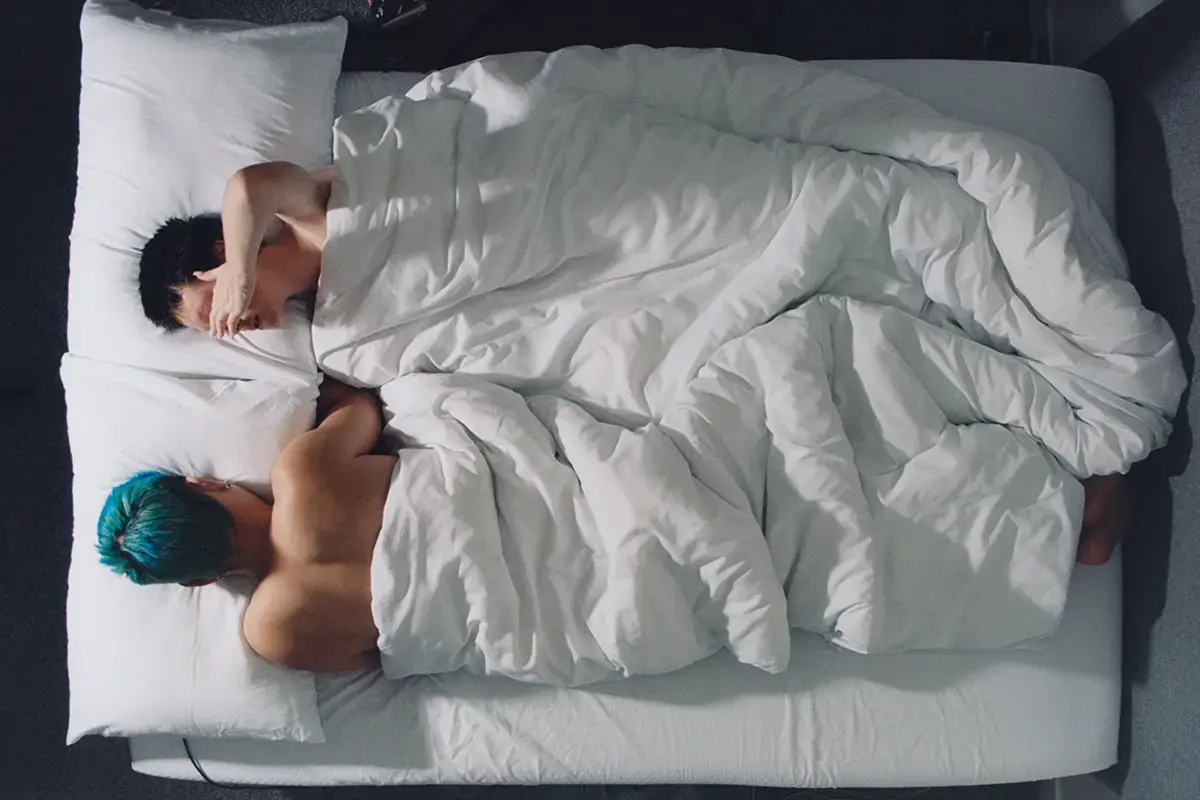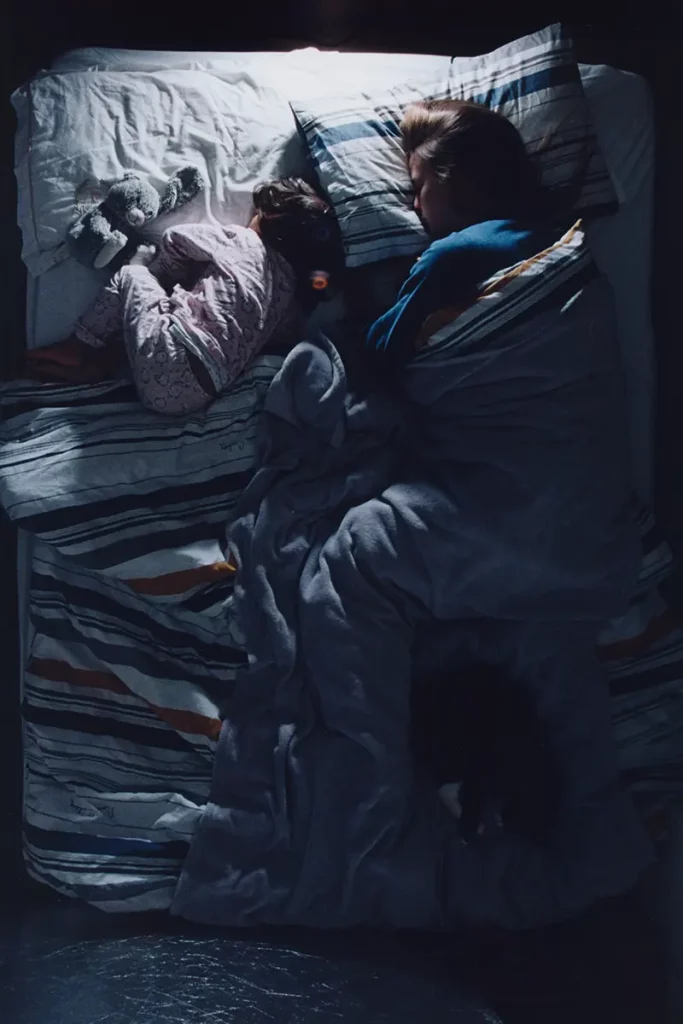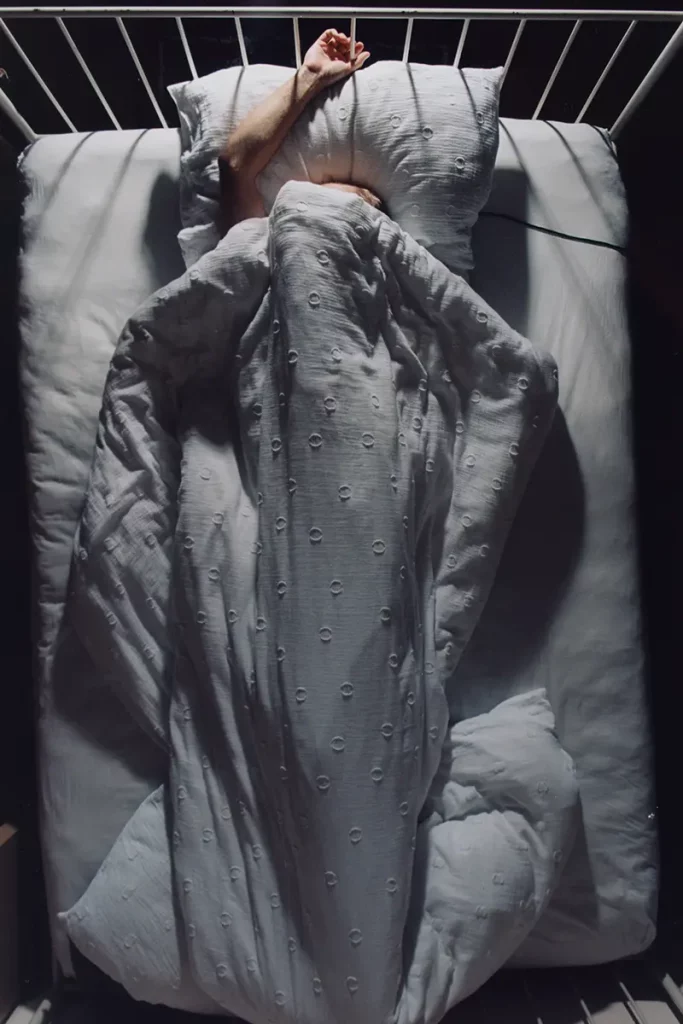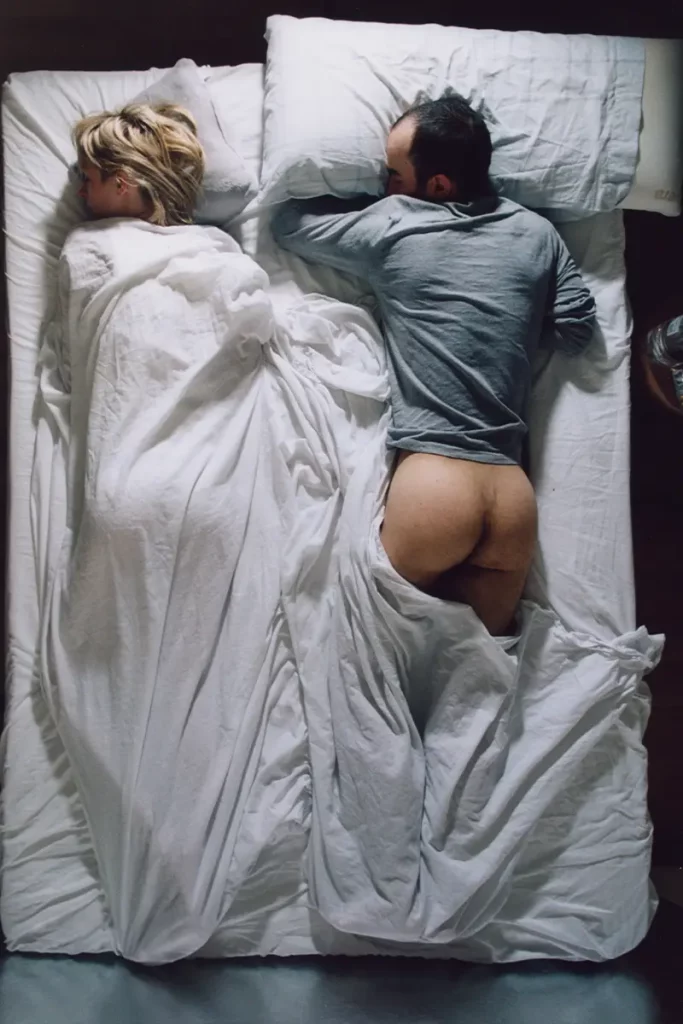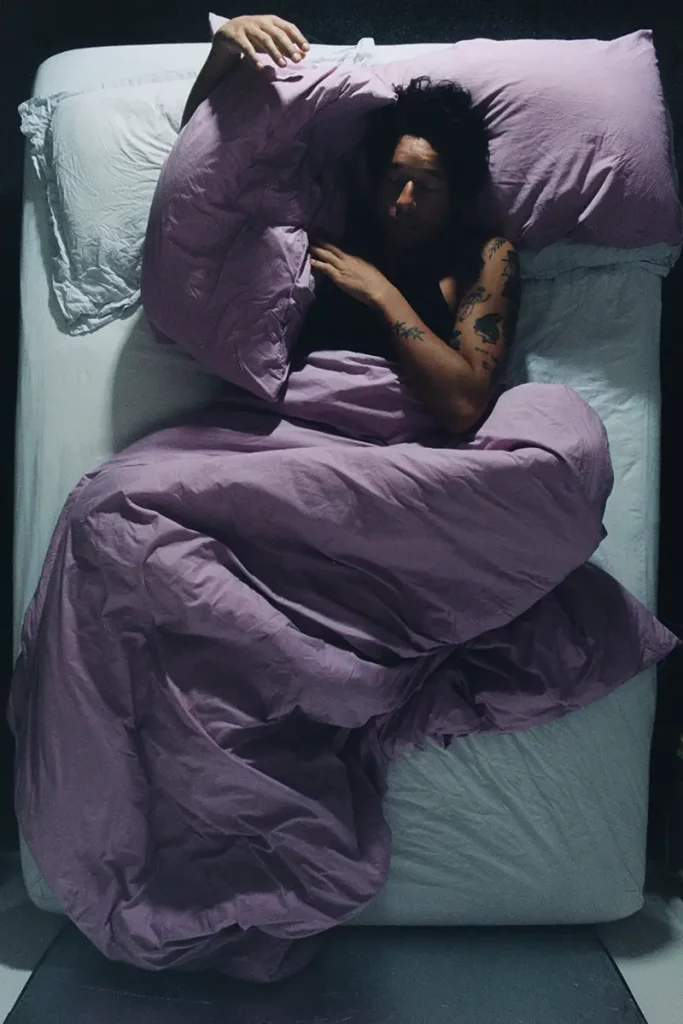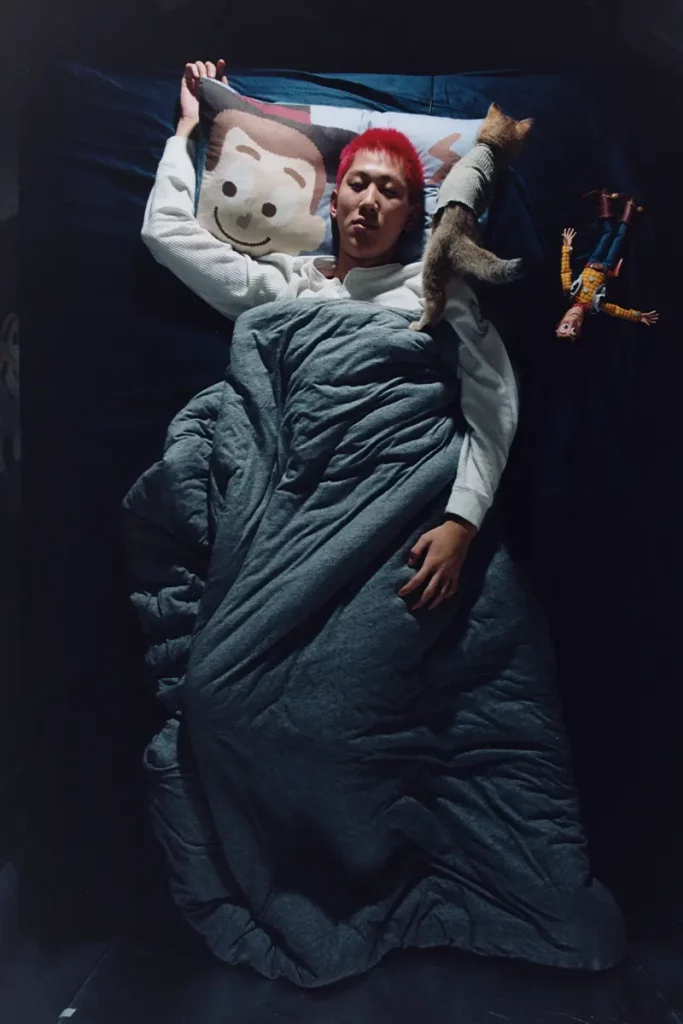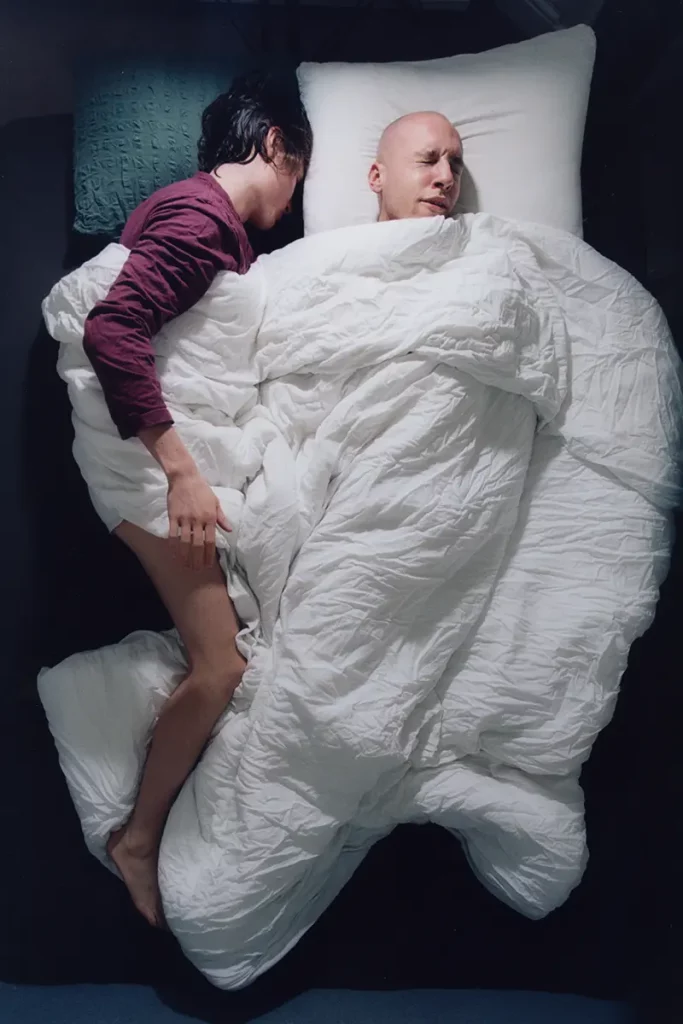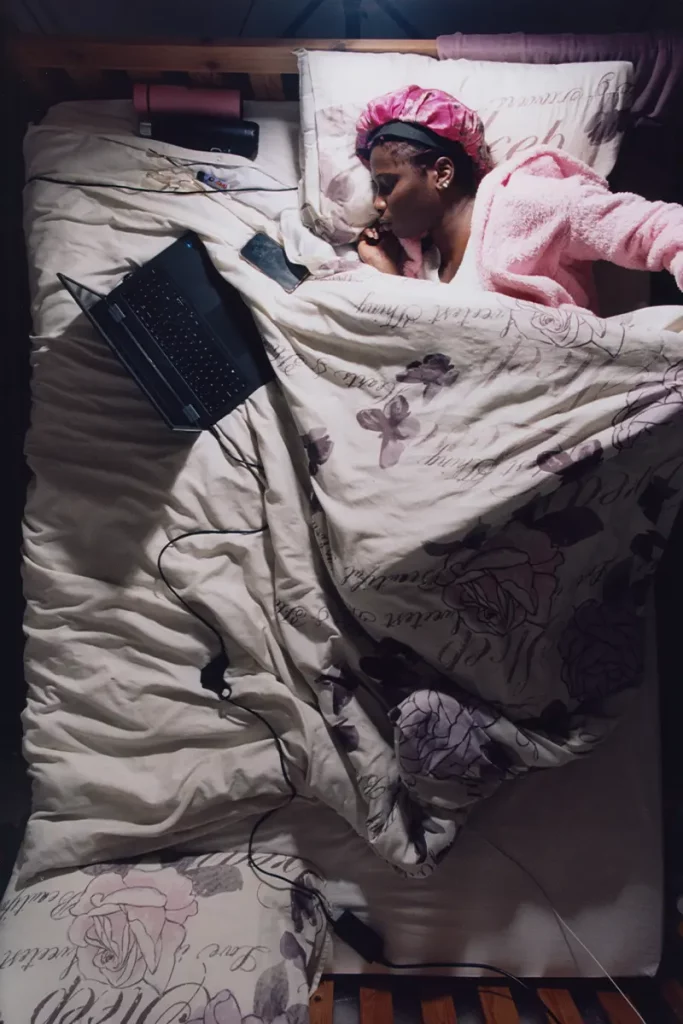Sleeping is an act that unites, humbles and humanises— Dorothy Sing Zhang’s series and photobook Like Someone Alive surveys and captures it, in all its sentimental beauty
Art Paper Editions and London-based visual artist Dorothy Sing Zhang presents Like Someone Alive, photographic series on the subject of sleeping
There exists an argument that in the present, modern world, sleep is perhaps one of the last authentic acts. It is a biological necessity; a mammalian function and mystery, as old as humanity and beyond. To sleep is to be without ego— to be without the worry of maintaining the facade of an appearance, a lifestyle or a viewpoint. To sleep is not only to temporarily remove oneself from the world, but ultimately to surrender to it. For all of the advancements we make in the physical world, our reliance on sleep remains as innate as that of water or indeed oxygen itself.
Presented by independent publishing platform Art Paper Editions and London-based visual artist Dorothy Sing Zhang, Like Someone Alive, a photographic series and publication, serves as an artistic survey, social archive and visual treatise on the subject of sleeping. Viewers are invited into the sleeping quarters of London’s inhabitants, witnesses to an act that much like many other intimate intricacies of everyday life, are otherwise off-limits for prying eyes.
Within each subject’s bedroom, a camera was set up in such a way that their movement while asleep, would activate a cable-release linked to a camera, thus triggering and resulting in the creation of an image. Subjects of all ages, races and genders are witnessed, uniformly, without intervention or bias, simultaneously lost to dreams and rest. Children lay beside parents; pets lay atop their owners, individuals dream in the clutch of teddy bears, and spouses snooze beside their other halves. By the will of the artist, performance is subverted by harnessing the subconscious in a creative re-imagining; an approach rooted firmly in conceptualism. Within such a bustling, often cynical city as London, it would appear that there is at least serenity to be found in slumber.
Dorothy Sing Zhang, studying at the Danish film school, Ecole De Leth
As we sit down for our interview, on a bright, Sunday afternoon, I can’t help but wonder, not only what effect Sing Zhang’s background in film, studying at the Danish film school Ecole De Leth has had on her work, but also where she places herself within a series of work, reliant on forces out of her control.
«Within the series, I was essentially like the producer. The photographer was dismissed. The photographer was someone anonymous», she muses. However, the idea of chance, when placed within the parameters of fixed rules within the series itself: the camera, the lighting and the composition all being set up in a certain way, with a rig almost guaranteed to create an image, perhaps does not seem as straightforward a concept to the artist.
«There really is no ‘chance’» reflects Sing Zhang, or rather the ‘chance’ can only exist within the rules that I have set up. My favorite wave of cinema: Dogme 95 (a wave of cinema in Denmark by Lars Von Trier and Thomas Winterberg) has ten rules that you have to follow, in order for the film to be a Dogme film. I really believe that in every capacity, when you have a set of rules, you’re able to generate something that you couldn’t have foreseen».
Dorothy Sing Zhang’s photography— the darker side of playing voyeur cannot be ignored
Although each duvet differs slightly and each choice of garment varies from frame to frame, something is affirming and unifying about the series— the equality on a mammalian level is indisputable. In many respects, the beds themselves share the limelight with their owners, in what clues they share about those that make use of them. It is their stains, creases and frames that punctuate the living experience of each; priceless fragments, from each visual story.
Yet, the darker side of playing voyeur cannot be ignored. Firstly, there is the idea of the spectator, observing subjects when they are at their most corruptible and lifeless. Secondly, there are the connotations of cessation— the idea that each subject could be suspended in eternal, peaceful rest. Lastly, there is the question of vanity— one seeing oneself, in a context that were it not for technology, would not be possible, something that the artist herself considered.
«If you think of a mirror», starts Sing Zhang, «it’s somehow against nature. We’re not sure if we should be able to see our reflection. So being able to see one’s self asleep; I think that there is this feeling of it being something that shouldn’t be able to see, especially within this perspective».
Subjects appear in the images, with their muted colours, solitary flashes and near-flat compositions, like photocopies or medical scans.
This perspective that the artist refers to, is that of omnipotence— an all-seeing view from above, in which little, to no details are spared. Subjects appear in the images much like photocopies or medical scans from a being high above. Other connotations of religion are hard to ignore within the series, perhaps in part due to the presence of chiaroscuro— the stark lighting and shadows by way of off-camera flash, invoking passionate biblical allegories of Baroque and Dutch Golden Age paintings. Sentimentality, however, was never the intention within the images.
«I think the thing I was trying to avoid from the very beginning was to not have the image feel sentimental, which I don’t think I necessarily achieved», says Sing Zhang, between cigarette tokes, «With this series, the concept was the priority, while the aesthetic was automated».
Dorothy Sing Zhang – 35mm helps take the resulting images further from being mere zeros and ones
Despite this suggested automation, perhaps the chief ingredient and driving force in the visual allure of the images is the medium used to make them. Much like the palpable depictions of slumber, the equally palpable medium of 35mm film, helps take the resulting images from being mere zeros and ones, into something with an organicity that is widely imitated but seldom replicated. The images seem to be able to live and to breathe; their colours are muted and familiar, with their imperfections as powerful as their counterparts. They are precious, not only in depiction but in the way they exist: as film negatives.
«For the first half of the year that I made the series, I had already been shooting digitally. It just felt like so much of the work was about imprint— I talk about this idea of ‘the approach’. The ‘approach’ of the body upon the trigger, the ‘approach’ of the chemical over the paper, so with digital just felt like it was being synthesised and that lacked this feeling of physicality».
Dorothy Sing Zhang, Like Someone Alive – an overview of London’s sleeping citizens
It goes without saying that the sheer scale of the project, deserves worthy praise. Photographed over eight months and comprised of fifty-four final images and subjects, Like Someone Alive possesses depth, not only in concept but in just how thorough the artist was in presenting an overview of London’s sleeping citizens. In many ways, this not only allows the resulting publication presented to be elevated from being a mere photo book to more of a tome— something that will stand the test of time, its content existing beyond snapshots, serving as a chronicle of society, that will no doubt be examined for decades to come.
As our conversation draws to a close, I cannot help but wonder about the woman away from the camera. For someone as well-travelled as Sing Zhang, and creatively diverse in working with both film and images, the place of home, creatively and literally, is a question that I cannot leave without asking.
«I feel most at home in London. It’s a Metropolitan city; it has the perfect amount of oppression, not much nature and there’s this feeling of everyone being a little sad. It’s not easy to be in London. For me, that’s always a good place to be creative».
Although here, it may be sadness which keeps Sing Zhang’s creativity primed, as far as her images are concerned, do not lament— they are only sleeping.
Dorothy Sing Zhang
Dorothy Sing Zhang is a London-based photographer and filmmaker. She studied film-making in Denmark at Ecole De Leth – while her fine art background was formed at the Slade in London.


